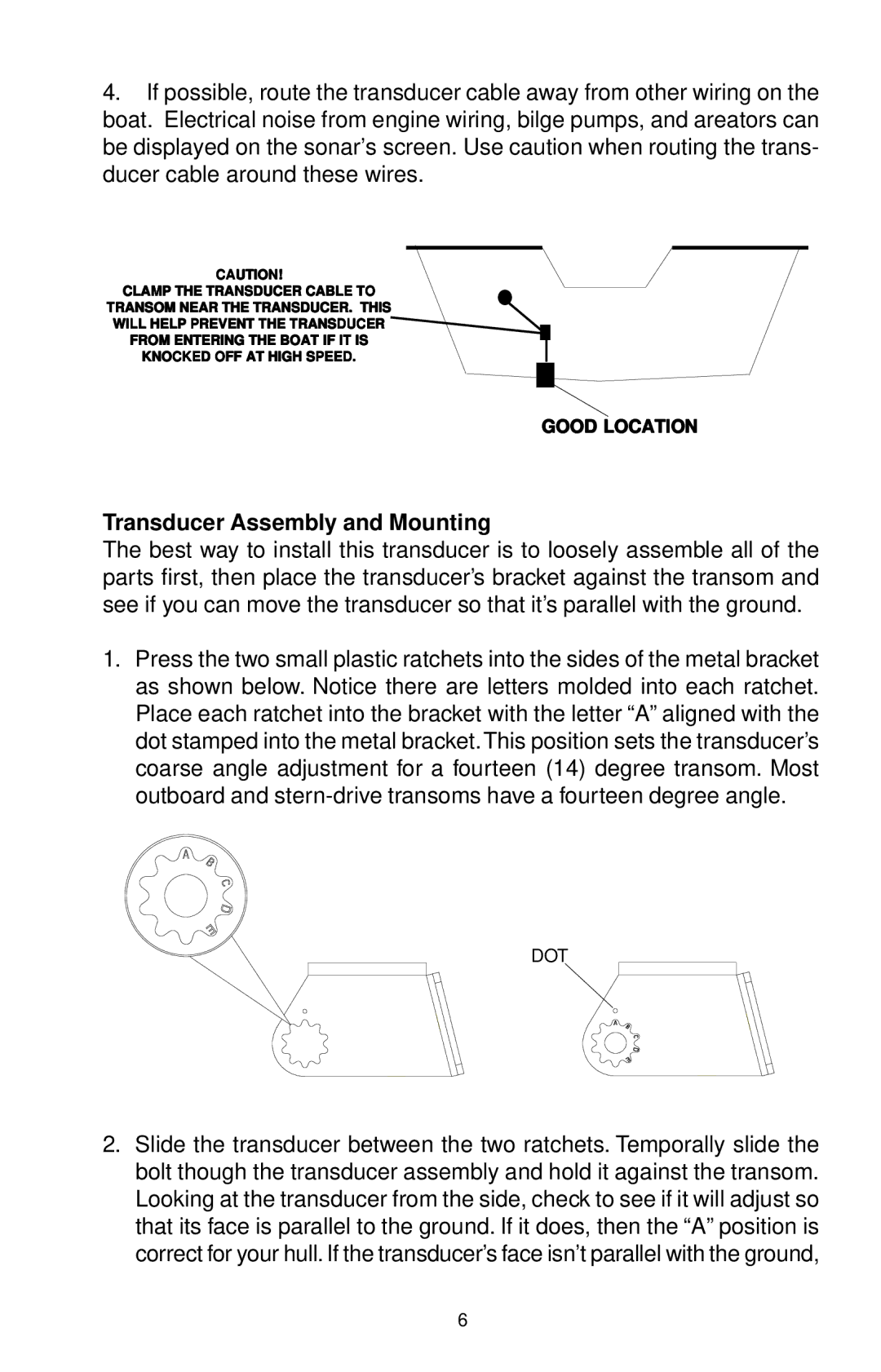
4.If possible, route the transducer cable away from other wiring on the boat. Electrical noise from engine wiring, bilge pumps, and areators can be displayed on the sonar’s screen. Use caution when routing the trans- ducer cable around these wires.
CAUTION!
CLAMP THE TRANSDUCER CABLE TO
TRANSOM NEAR THE TRANSDUCER. THIS
WILL HELP PREVENT THE TRANSDUCER
FROM ENTERING THE BOAT IF IT IS
KNOCKED OFF AT HIGH SPEED.
GOOD LOCATION
Transducer Assembly and Mounting
The best way to install this transducer is to loosely assemble all of the parts first, then place the transducer’s bracket against the transom and see if you can move the transducer so that it’s parallel with the ground.
1.Press the two small plastic ratchets into the sides of the metal bracket as shown below. Notice there are letters molded into each ratchet. Place each ratchet into the bracket with the letter “A” aligned with the dot stamped into the metal bracket.This position sets the transducer’s coarse angle adjustment for a fourteen (14) degree transom. Most outboard and
DOT
2.Slide the transducer between the two ratchets. Temporally slide the bolt though the transducer assembly and hold it against the transom. Looking at the transducer from the side, check to see if it will adjust so that its face is parallel to the ground. If it does, then the “A” position is correct for your hull. If the transducer’s face isn’t parallel with the ground,
6
